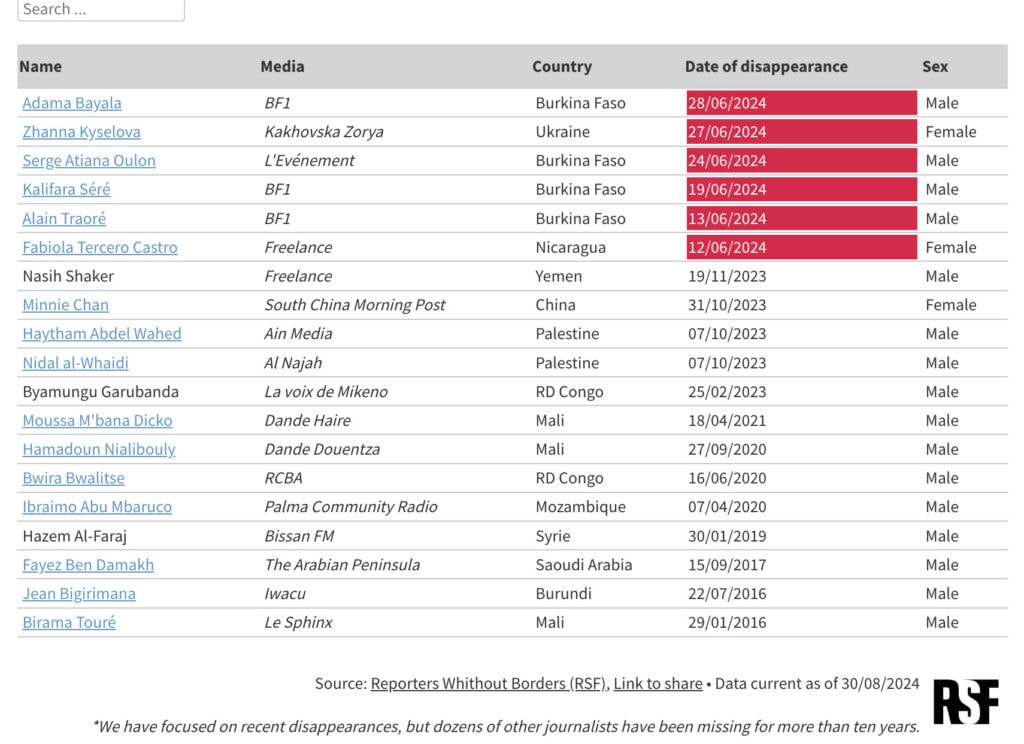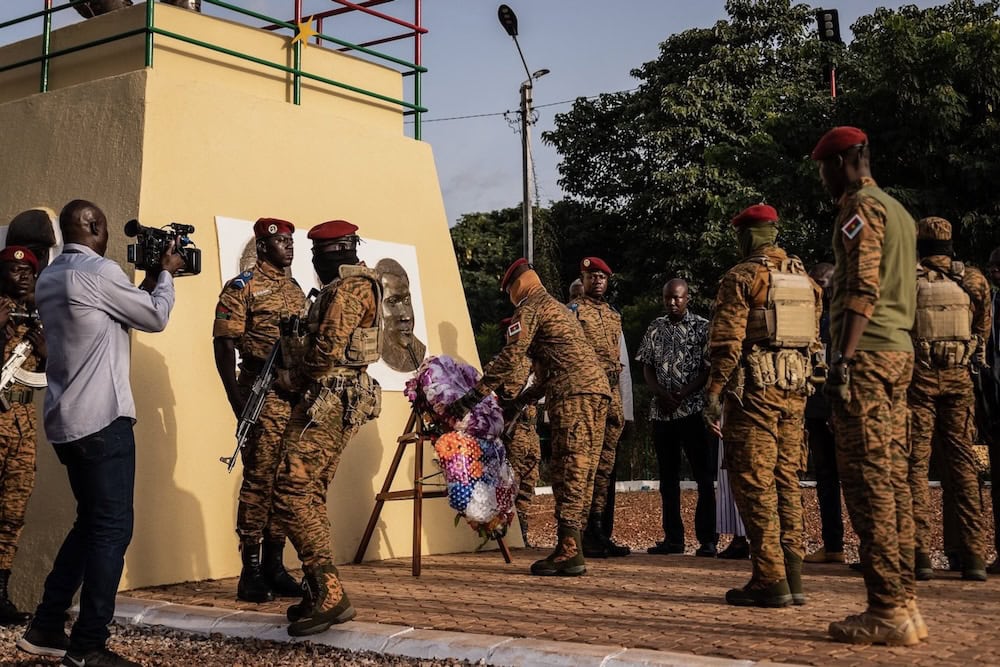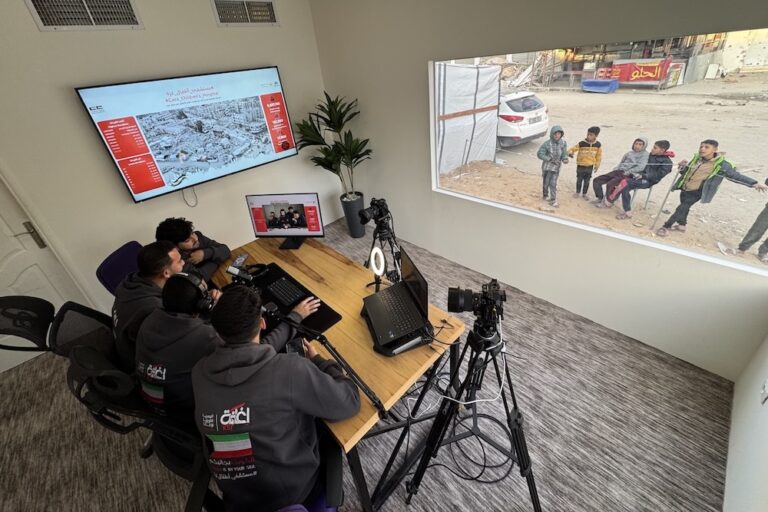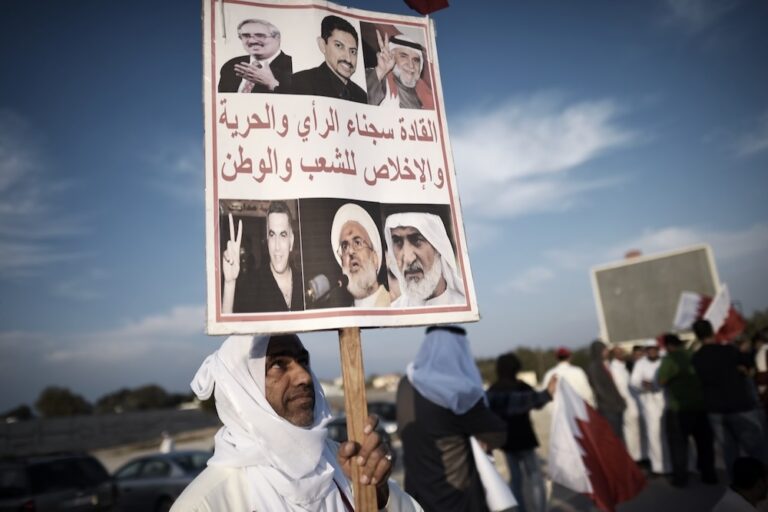According to RSF, 32 journalists have gone missing in the last decade; 19 of these were the victims of enforced disappearance by state agents.
This statement was originally published on rsf.org on 30 August 2024.
To mark the International Day of the Victims of Enforced Disappearances, which falls on 30 August, Reporters Without Borders (RSF) openly condemns the active role governments play in maintaining silence around the fate and whereabouts of the 19 media professionals who have fallen victim to enforced disappearance since 2015, and who remain missing. RSF calls on the authorities to do everything in their power to ensure these journalists recover their freedom.
Today, over half of the world’s journalists who have disappeared over the past ten years are victims of enforced disappearance: By RSF’s count, that’s 19 of the 32 journalists who have gone missing in the last decade. Governments are directly responsible for this as, by definition, an “enforced disappearance” refers to a deprivation of liberty caused by state agents who deny or conceal the fate and whereabouts of the missing person.
“At a time when the number of enforced disappearances continues to rise, RSF is concerned about the active role played by certain authorities in silencing journalists’ voices at the detriment of their freedom. RSF calls for the universal ratification of the International Convention for the Protection of All Persons from Enforced Disappearance, which was adopted by the United Nations General Assembly in 2006 but only counts 75 ratifications to date.”
Antoine Bernard, RSF’s Director of Advocacy and Assistance
A dozen governments are behind these disappearances. Of the 19 journalists who have fallen victim to enforced disappearance since 2015, Burkina Faso has recorded four, Mali has recorded three, the Democratic Republic of Congo has recorded two, and Palestine also recorded two (journalists Haytham Abdel Wahed of Ain Media and Nidal al-Wahidi of the News Press news website were abducted by the Israeli army on October 7, 2023).
The 19 journalists who have fallen victim to enforced disappearance since 2015 remain unaccounted for to this day in 12 countries
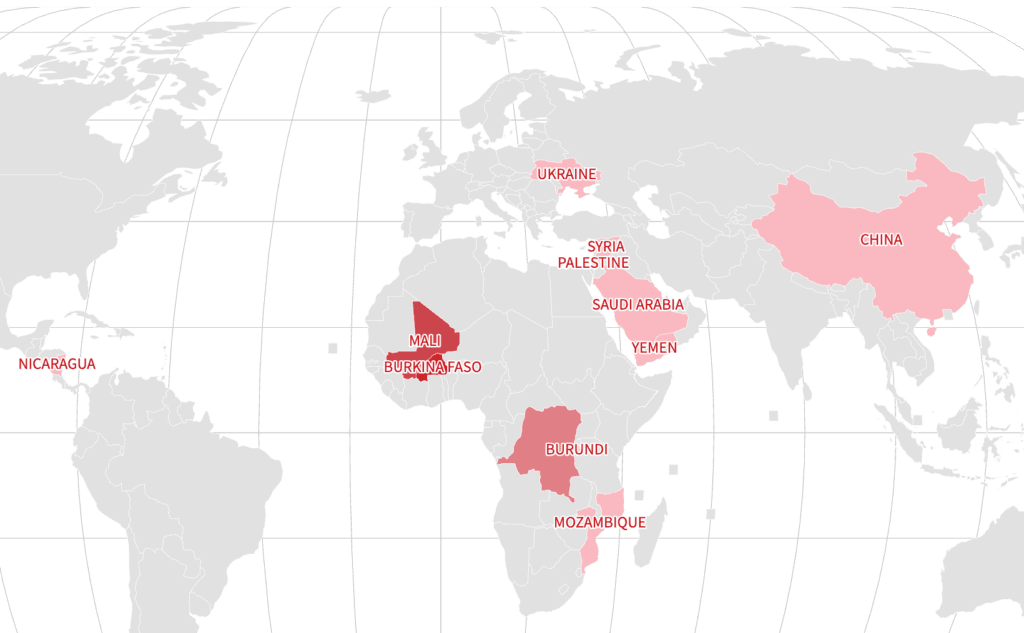
Six new enforced disappearances in 2024
6 media professionals have disappeared since the beginning of 2024, a statistic that has risen since 2023, when five journalists were recorded.
- Burkina Faso: a spike in enforced disappearances rocked the country in June. Four journalists disappeared in ten days, making Burkina Faso the country with the highest number of cases in 2024. The editor-in-chief of the Omega Médias group, Alain Traoré, a satirical journalist whose column “Le Défouloir” criticizes the authorities, was abducted from his home on 13 June. Channel BF1 commentator Kalifara Séré, known for his outspoken criticism of the military junta, mysteriously disappeared after attending a hearing with Burkina Faso’s telecommunications regulator, on June 19. Nine days later, on 28 June, his colleague Adama Bayala, also a commentator on BF1, was abducted in broad daylight after receiving threats. Meanwhile, the editor of the newspaper l’Événement, Serge Atiana Oulon, was abducted on the morning of 24 June 24.
- Ukraine: On 27 June, Ukrainian journalist Zhanna Kyseliova was abducted by Russian forces from her home in Kakhovka, a town in the Russian-occupied Kherson region. Editor-in-chief of the local newspaper Kakhovska Zorya before it was liquidated following the invasion on 24 February 2022, she is one of three women journalists who have fallen victim to enforced disappearance. This is not the first time that Russian authorities have abducted journalists without claiming responsibility. RSF’s investigations have shed light on the enforced disappearance of Dmytro Khyliuk, correspondent for the Ukrainian news agency UNIAN, who was abducted on 3 March 2022 from a village north of Kyiv.
- Nicaragua: On 12 July, seven police officers broke into the home of journalist and activist Fabiola Tercero Castro in the capital Managua, where she was under house arrest and the obligation to report to a police station daily. The journalist – who had worked for multiple outlets, including the online magazine Galeria News – could be in a state prison, although there is no official information confirming this theory. President Daniel Ortega’s regime has stepped up its crackdown on the few remaining independent journalists in the country.
19 journalists who fell victim to enforced disappearance since 2015, whose fate and whereabouts remain unknown
